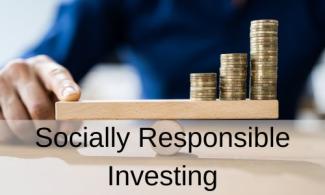
Socially Responsible Investing
For many investors, the ultimate goal is not just financial success, but also to make a positive difference in the world. Intrigued by the idea of doing good while growing your wealth? Let’s explore the powerful concept of socially responsible investing (SRI).
What is socially responsible investing (SRI)?
Socially responsible investing (SRI) is a strategy that allows investors to align their investments with their personal values. It focuses on companies that are committed to making a positive social impact while still delivering competitive financial returns. SRI often goes hand in hand with ESG (Environmental, Social, Governance) investing, which evaluates a company’s environmental sustainability, social responsibility, and corporate governance practices alongside traditional financial metrics.
4 key points about socially responsible investing
While SRI and ESG investing are often used interchangeably, SRI tends to take a stricter approach by focusing on companies with clear positive social impacts. Here’s a closer look at how SRI works:
- SRI Excludes Controversial Industries
Socially responsible investors actively avoid companies that operate in industries known for harmful or unethical practices. This process, known as negative screening, filters out sectors such as gun manufacturing, tobacco, gambling, nuclear power, adult entertainment, and predatory lending. By excluding these industries, SRI ensures that your investments align with values that support a more positive and sustainable future. - The ESG Framework Guides Evaluation
After excluding controversial industries, socially responsible investors use the ESG framework to evaluate companies. Environmental criteria focus on how a company manages natural resources, reduces waste, and tackles environmental risks. Social criteria assess how companies treat their employees and interact with the communities in which they operate. Governance criteria look at corporate practices, such as board independence, executive compensation, and transparency. By evaluating companies through an ESG lens, investors ensure they are supporting businesses with strong, sustainable practices. - SRI Doesn’t Compromise on Financial Returns
Contrary to the misconception that ethical investing means sacrificing profits, socially responsible investors expect their portfolios to perform just as well, if not better, than traditional investments. SRI is about responsible investing, not philanthropy. It seeks both positive social outcomes and solid financial returns. - SRI Benefits Investors—and Everyone Else
Socially responsible investing proves that you don’t have to choose between building wealth and making the world a better place. By investing in companies that prioritize sustainability and ethical practices, you can enjoy financial success while contributing to a more equitable and environmentally sustainable world.
With over twenty years of experience in socially responsible investing, I’m passionate about helping individuals align their investments with their values. If you’d like to learn more about how SRI can benefit both your portfolio and the planet, feel free to reach out—I’m here to help.

